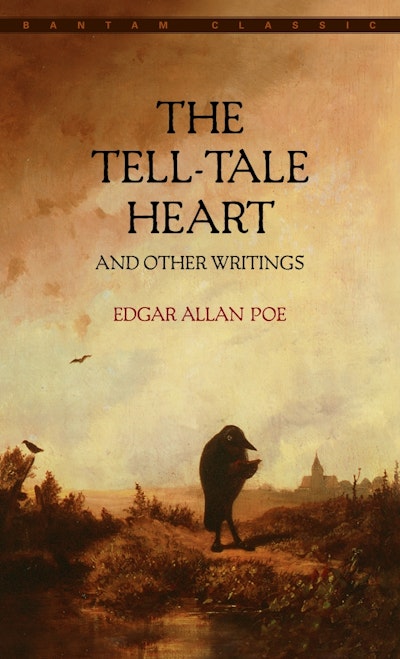


This leads the reader to question whether the sound truly originates from the body of the dead man, or rather, from the narrator’s own guilt-stained breast. Although the narrator is convinced the source of the sound originates in the external environment, the officers remain unperturbed and appear unable to hear it. As the narrator flirts recklessly with the possibility of discovery, and entertains police officers directly over the floorboards where the victim is concealed, he begins to hear a “low, dull, quick sound” that waxes in intensity. At this point, the narrator’s paranoia and monomania rapidly degenerates into full-fledged auditory hallucinations. The instability of the narrator’s mental state is revealed in full shortly after the murder is completed.

This admission further calls into question the narrator’s mental state prior to the murder. On the night of the murder, the narrator hears the old man’s “groan of mortal terror” which he describes as the “low stifled sound that arises from the bottom of the soul when overcharged with awe.” The narrator further remarks that he recognizes the sound as one that regularly comes from his own bosom on the nights when he is tormented by unspeakable and unknowable terrors. In response to questions about his motivation, the narrator comments “ I think it was his eye!” The narrator’s discernible sense of doubt over his own motivation undermines his credibility, and places his account of the murder under closer scrutiny. Even his ostensible motivation for the murder, in this case, fury over the old man’s pale blue, vulture-esque eye, seems hollow and contrived. The narrator’s pretense to sanity, however, is undermined by the passionless and objectless nature of the crime. The narrator, who suffers from an “acuteness of the senses,” justifies his sanity by illustrating the methodical and systematic efforts he took to execute the murder. To this end, the narrator vividly recalls the events leading up to the eventual murder. Despite openly acknowledging the role he played in carrying out the crime, the narrator seems far more concerned with proving his sanity, rather than his innocence. The “Tell-Tale Heart” begins with an unnamed narrator confessing to the murder of an elderly neighbor. The Tell-Tale Heart,” like Poe’s other works, is concerned with understanding the emotion of fear, the psychology of mental illness, and the interaction between mental and bodily processes.


 0 kommentar(er)
0 kommentar(er)
